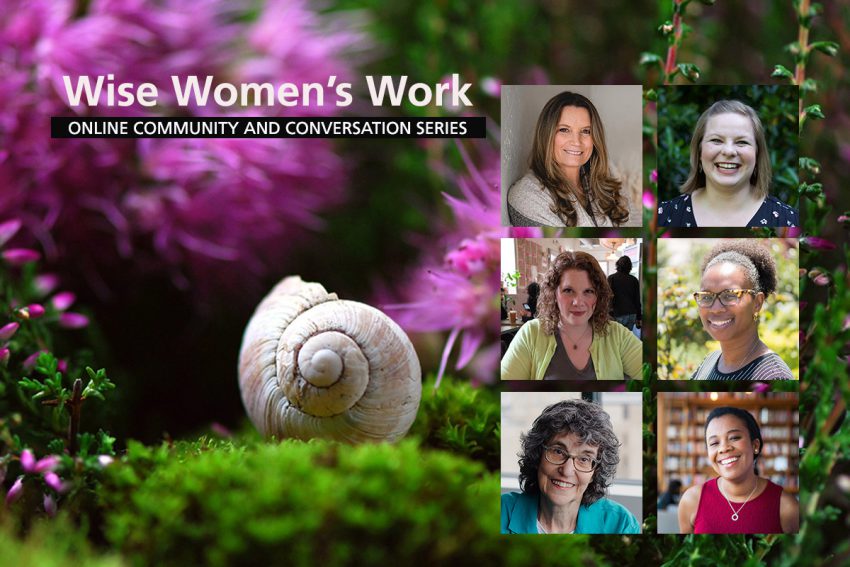Sometimes the idea comes as a sudden epiphany, whole cloth and gift-wrapped.
It was mid-summer 2020. We were four months into a pandemic that had shut everything down. The quiet of city streets, empty of people and vehicles, stood in stark contrast to the mayhem of lives turned upside down. And it was evident from the very beginning that women were disproportionately affected. Before the end of that first year, pundits were already estimating that COVID-19 had eliminated 10 years of women’s progress toward economic equality. Friends of mine fortunate enough to keep their jobs juggled work from home as the lion’s share of monitoring remote school for young children fell on their shoulders. Others had to care for aging parents remotely as nursing homes closed their doors to visitors. Some had to welcome adult children, jobless and unable to pay rent, as they moved home. And women held most of the high risk “essential work” jobs.
Whatever one might say about recent strides that have been made toward gender equity, the crisis made it clear; caregiving and juggling were still primarily women’s work.
“How long will this last?” I asked my friend in public health. “Two years,” she whispered. “At least.” I was dumbstruck. I could already see the toll it was taking on all these women. How would we make it?
What could I do?
My work as a program director finds me at the intersection of resources and communities that need them. I just wanted to take all these women and tell them, “I see you.” I wanted to care for the caregivers and help them access resources that would support and encourage them in this impossibly hard time. But what could I do? As much as I wanted to, I couldn’t take them away or gather them in a beautiful place. We might die. And that, I thought, was the particular cruelty of this pandemic: it not only upended our lives, it also took away our ability to access the very things that make hard times manageable—relationships, time away.
The situation seemed impossible, and it weighed on me.
And then I awakened at 2:00 a.m. on a Tuesday night in early August. The voice of Howard Thurman whispered in the background: “How good it is to center down!” And the answer to the dilemma presented itself—whole, elegant, and complete with marching orders. You can’t take them away, the idea said; we can’t go out. But perhaps we could follow Thurman’s lead and go in, deepening our interior lives and finding the presence of the life-giving Spirit right where we are. Perhaps we could remember how to find the sacred in the ordinary.
Maybe what these women needed was the gentle guiding voices of wise women who had been their North Stars in other times. Maybe I could use my position to invite these wise women to speak to all those women who needed a word of encouragement.
Maybe we couldn’t have a weekend away, but we could have monthly “micro-retreats”—90 minutes on an evening when they had permission to put a “Do not disturb” sign on the door and with the magic of technology, be connected to other women sharing their struggles and wise women who would point the way through.
And so Wise Women was born.
That 2″00 a.m. epiphany even gave me the gift of which six women to invite that first year: Carrie Newcomer, Barbara Brown Taylor, Chanequa Walker-Barnes, and more.
Did the series hit its intended mark? That first year, we had 1,000 women sign up from four continents (and seven guys, too!). We are now in our third year. The numbers of registrants have settled somewhat, because there is no longer the emergent need. But we succeeded in forming a real sense of community through the unlikeliest of media—that first year, it was Zoom Webinar, not even Room!
We’ve talked about—and done—the practices that anchor us in troubled times. We’ve imagined the world we want to emerge into post-pandemic. We’ve celebrated the crucial and often undervalued work women have historically done to keep the world turning on its axis.
“Wise Women saved my sanity.”
I have a folder full of the e-mails I received from participants. “You kept me going during the pandemic,” so many of them say, or, “Wise Women saved my sanity as I lost loved ones/dealt with job loss/went crazy taking care of young kids/felt desperately lonely. Thank you.”
In some of the earliest Christian writings, the Holy Spirit is referred to in the feminine; in Proverbs, wisdom is personified as a woman. That makes sense to me. I’d like to think that she was the one who woke me up at 2:00 a.m. and said, “Hey, Helen—I’ve got a really great idea . . .”
Dr. Helen Blier is the director of Continuing Education at Pittsburgh Theological Seminary.
Learn more about Wise Women’s Work.



1 thought on “Wise Women: An Origin Story”